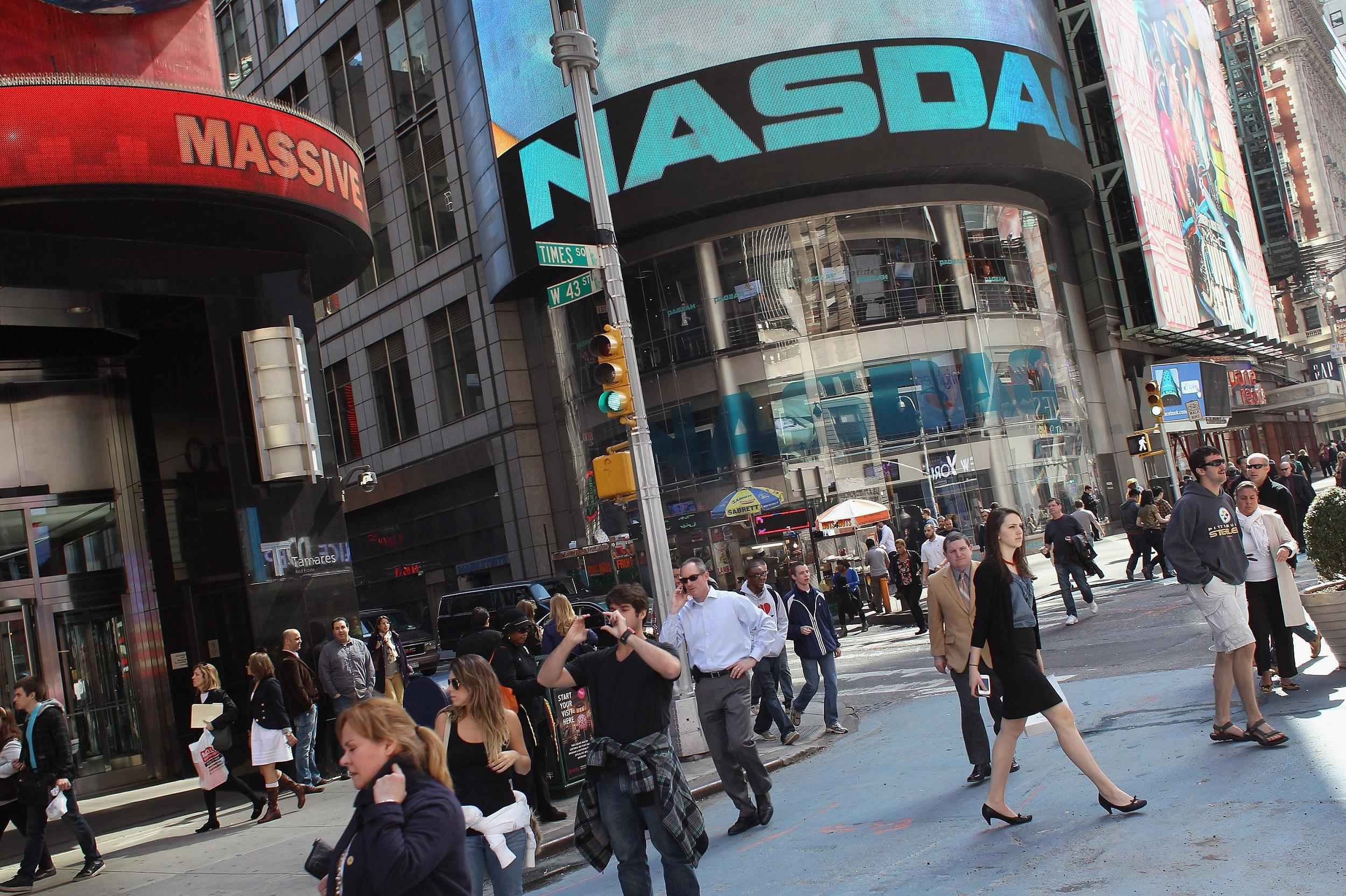
Business
16:54, 07-Dec-2017
Tulips and the dot-com crash: Is bitcoin just another bubble?
CGTN's Nicholas Moore

Bitcoin hit a dizzying new height of 14,200 US dollars on Thursday, with its remarkable rise sparking concerns that the cryptocurrency is now in dangerous bubble territory.
Supporters meanwhile continue to insist that the price hike is down to the cryptocurrency finally being accepted as part of the mainstream.
Without the benefit of hindsight, it’s impossible to know who is right or wrong when it comes to bitcoin. However, historic bubbles offer a stark warning – investors who follow the crowd more often than not get their fingers burnt, losing vast amounts of money in the process.
Flower power: Dutch tulip mania
When it comes to investor crazes and unbelievable bubbles, the Dutch tulip phenomenon of the 17th century is probably the first that comes to mind. After the flower was introduced to Europe in the 16th century, the Netherlands became a center for cultivating and exporting tulips, which fast became a status symbol.

VCG Photo
VCG Photo
The market became so big, that futures contracts in tulips were being traded, and speculation spread among the population to the extent that a single tulip bulb at one point sold for more than five times the price of an average house.
In February 1636, an outbreak of bubonic plague meant buyers stopped turning up to auctions, and prices suddenly collapsed, causing entire fortunes to disappear overnight.
How does bitcoin compare?
Investors today probably don’t need to worry about the plague, but the rapid rise in bitcoin echoes the tulip craze. CME Group’s plans to unveil bitcoin futures this month arguably give the cryptocurrency more legitimacy, but at the end of the day, investors are buying an asset that is not a physical object.
Speaking in 2013, Nout Wellink – the former president of the Dutch Central Bank - said bitcoin was worse than tulip mania, because “At least then you got a tulip [at the end], now you get nothing.”

Former president of the Dutch Central Bank Nout Wellink (L). /VCG Photo
Former president of the Dutch Central Bank Nout Wellink (L). /VCG Photo
Arguably, times were different then – it would still take a few more centuries until banking systems and regulations were in place in Europe. But then again, bitcoin is by its very nature unregulated, dropping investors into uncharted waters.
Tech boom and bust: The dot-com bubble
The past 20 years have been marked by the rise of the Internet – without it, there would of course be no bitcoin. But in the late 1990s, the World Wide Web, e-commerce and information technology were still new concepts.
The beginning of a new online era saw a flurry of new Internet patents, domain names and companies being registered and backed by hundreds of millions of dollars. As far as investors were concerned, the Internet was the future, and failure to back a “dot-com” company meant being late to the party.

The Nasdaq Composite lost 78 percent of its value when the dot-com bubble burst. /VCG Photo
The Nasdaq Composite lost 78 percent of its value when the dot-com bubble burst. /VCG Photo
As a result, a series of IPOs saw young tech founders become overnight millionaires, while shares in new and lucrative dot-coms expanded rapidly – Qualcomm saw its stock rise by 2,619 percent in 1999.
Many of the dot-coms had never demonstrated that they were capable of making a profit, and when the bubble burst in the early 2000s, many went bust, losing hundreds of millions of dollars in venture capital.
Should bitcoin investors be worried?
The herd mentality and a “buy now, ask later” approach to investing in bitcoin will sound familiar to anyone who made losses in the dot-com crash. Celebrity endorsements of cryptocurrencies by stars like Paris Hilton are also unwelcome echoes of the dot-com boom at its peak, when adverts calling on investors aired to millions of people during the 1999 Superbowl.

Paris Hilton, Floyd Mayweather and The Game are just some of the celebrities who have backed cryptocurrencies in 2017. /VCG Photo
Paris Hilton, Floyd Mayweather and The Game are just some of the celebrities who have backed cryptocurrencies in 2017. /VCG Photo
According to Bloomberg, by comparing payment-to-earnings ratios, bitcoin already costs four times more than dot-com stocks did at their peak. However, the bursting of the dot-com bubble was in some ways the end of the beginning for the Internet age, and the companies that managed to survive the crash – such as Amazon, eBay and Google – have gone on to huge success.
For bitcoin and other cryptocurrencies, any correction to the current hype could cut the wheat from the chaff and see the emergence of new leaders in blockchain technology, meaning even bigger long-term gains for investors happy to handle the hump of what could be a short-term drop in prices.

SITEMAP
Copyright © 2018 CGTN. Beijing ICP prepared NO.16065310-3
Copyright © 2018 CGTN. Beijing ICP prepared NO.16065310-3